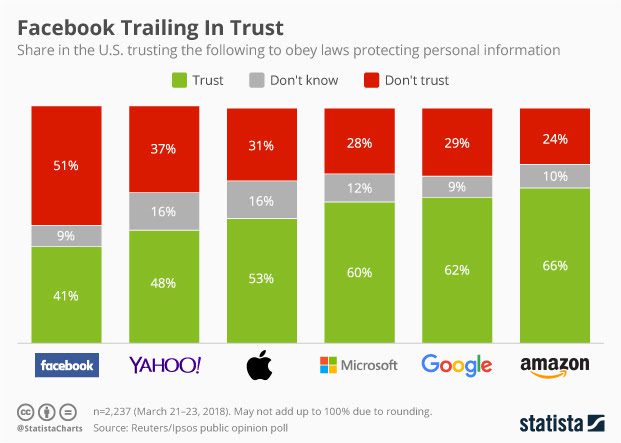Cambridge Judge MBA 2019-20 Deadlines Revealed

Hopeful applicants to the next One-Year, full-time MBA class at the University of Cambridge Judge Business School have some new deadlines to remember.
New Cambridge MBA Deadlines
Round One
Application Deadline – Sep. 9, 2019
Interview Dates – Oct. 21-22, 2019
Round Two
Application Deadline – Oct. 28, 2019
Interview Dates – Dec. 8-9, 2019
Round Three
Application Deadline – Jan. 13, 2020
Interview Dates – Feb. 23-24; March 1-2, 2020
Round Four
Application Deadline – March 9, 2020
Interview Dates – April 26-27, 2020
Round Five
Application Deadline – May 5, 2020
Interview Dates – June 7-8, 2020
Top MBA Recruiters: IDEO

If you’re interested in international design and consulting, IDEO (pronounced eye-dee-oh) should be on your radar. Launched in Palo Alto, CA in 1991, the company is known for using design-thinking methodology to design its products, services, environments, and digital experiences. They’re involved in a wide range of consumer products (toothbrushes, computers, personal assistants, etc.) experiences (non-traditional classrooms), as well as management consulting and organizational design.
Known for designing the first manufactured mouse for Apple, IDEO leads the way for human-centered design. As their website says, “IDEO has long been at the forefront of creating change through design.” Continue reading…
Top 5 European MBA Programs for ROI

There’s no denying that European business schools are commanding a growing share of MBA students. According to the latest trends, as MBA applications have dropped in the U.S., they’ve increased. Last year, 61 percent of European business schools reported an increase in application volume.
There are many reasons for this increase, from the changes in U.S. immigration policies to the desire for a more globally focused education. However, one of the most appealing aspects of European business schools has to be cost. American business schools typically require a hefty investment in tuition as well as two years of foregone salary. In Europe, it is far less.
Many schools in Europe receive government funding, allowing it to offer lower tuition. For example, an MBA at IMD in Switzerland costs just CHF 60,000 for its One Year MBA. This low tuition cost and short program length also translates into a powerful return on investment (ROI). Continue reading…
The Perfect MBA Career: Portfolio Manager

If working in investment strategy seems appealing, then a job as a portfolio manager may be right for you.
Financial Times Ranks the Top MBAs for Entrepreneurs

Leading entrepreneurs in the business world today can often be seen as trailblazers, standing strong and independent in an often cutthroat world. What isn’t seen as often is the kind of support—whether financial capital or mentorships—that can help get an idea off the ground. In recent years, business schools and MBA programs around the globe have made this kind of support for new businesses a core part of their operation, often offering entrepreneurship majors, business pitch competitions, startup incubators and more.
Each year, The Financial Times releases their ranking of the best MBA programs for entrepreneurship, helping up-and-coming entrepreneurs to make informed choices about the best program for their career and startup goals. Its latest ranking, for 2018, has just been released.
The 2018 ranking of the top MBA’s for entrepreneurship compiled fifty schools from around the world. A number of factors went into determining which schools would make the grade, including the percentage of graduates who started a company after earning their degree, percentage of female entrepreneurs, the extend to which funding from the school or from the school’s alumni network helped in the creation of new businesses, and more. These factors combined would help decide in what position a school would fall on the ranking.
This year, schools in the United States took the top three spots on the list: the Stanford Graduate School of Business, the F.W. Olin Graduate School of Business at Babson College, and the Tuck School of Business at Dartmouth College. Two UK business schools—the Lancaster University Management School and the Cass Business School—rounded out the top five.

Despite dipping numbers of students, the Stanford Graduate School of Business entrepreneurship program is still the top-ranked in the world, according to the Financial Times.
At Stanford, although it still ranked as the best school for entrepreneurship globally, there was actually a significant drop since in the number of students starting a business within three years of graduation. This year, it was just 22 percent of students compared with last year’s 36 percent. Babson College’s Olin Graduate School of Business also witnessed a drop; from 52 percent last year to 37 percent in 2018.
One explanation for the drop, however, is not that interest in entrepreneurship is declining, but instead being taken on more as a ‘side hustle’ than a full-time career. This was certainly the case for Samantha Penabad, a former strategy manager at Accenture and MBA at Berkeley’s Haas School of Business, who has been working on a digital donation platform called GivingFund. Although she didn’t intend on becoming an entrepreneur when she started business school, tutors at the university helped her to develop a business plan and a fellow student with finance experience joined as a co-founder. The service is scheduled to launch later this month.
But GivingFund remains a side job for Penabad, who will be taking on a full-time job in strategy and operations at Google in New York after graduation. As a result, someone like Penabad will be not be included in data for students starting businesses after graduation, but among those accepting full-time jobs. Students pursuing similar paths—working full-time but starting businesses on the side—may help explain the dip in entrepreneurship that many MBA programs are witnessing.
One reason behind this trend may be the fact that many students see a full-time role as just one step to eventually starting their own company. By putting their skills to work at a top company like Amazon or Google, students are able to more quickly pay off their student loans, which means eventually starting a business debt free. Companies like Amazon also may seek out those with entrepreneurial experience, because it demonstrates an attractive leadership quality.
“We welcome applicants with an entrepreneurial spirit,” says Amazon’s senior manager of campus recruiting, Dee Clarke. “They are given the ownership over their work, like they would [in] their own business, but within a global support network that provides added guidance and support.”
Guthrie Jones, an MBA at London’s Cass Business School, holds a similar philosophy. Although he had no intention of getting into entrepreneurship, he couldn’t stop thinking about one particular business idea and decided he’d have to pursue it. Guthrie believes his company, Icepick, which lets people rent out space on their hard drives, has the potential to become a global business. Still, if he right opportunity for a salaried role came up after graduation, he would gladly shift his plan to the side.
Nevertheless, student interest in studying entrepreneurship as part of their MBA has grown at schools like Cass. Part of this may be the result of Cass’s £10m investment fund, which has not only supported new MBA start-ups but has also trained students in the process of investing.
Financial Times MBA Entrepreneur Ranking (2018)
- Stanford Graduate School of Business
- F.W. Olin Graduate School of Business (Babson)
- Tuck Business School (Dartmouth)
- Lancaster University Management School
- Cass Business School (City University)
- Otto Beisheim School of Management (WHU)
- IMD Business School
- Saïd Business School (Oxford)
- Harvard Business School
- Judge Business School (Cambridge)
What They’re Saying: The Facebook Fallout

It seems puzzling to say a company that is worth nearly half a trillion dollars is venturing somewhere near zero degrees Kelvin, but if you were only reading headlines this week you’d get the sense that Facebook isn’t looking so hot.
Since the break of the Cambridge Analytica scandal, the tech giant lost an estimated $100 billion USD in value, and its beleaguered founder Mark Zuckerberg lost an estimated $14 billion of his own worth. Fortunately for him, according to CNN, he’s still worth over $60 billion so he can easily afford more mayonnaise and butter sandwiches.
But the fallout is more than monetary. Trust in the social media company is at a critical low point, according to Statista data.

Janina Conboye at the Financial Times recently asked how the company may go about repairing its own image in “The MBA view: can Facebook fix its reputation?,” speaking with numerous business school faculty members, including London Business School‘s Jill Schlechtweg, who plainly says, “It is worth wondering whether Facebook can regain credibility at all. Arguably Mark Zuckerberg has evaded responsibility for the social costs of social media addiction, the proliferation of fake news, and now leaks of personal data for political ends.”
Check out how other business schools and industry experts are reacting the ongoing Facebook story below.
What @facebook knows about you apparently includes data about phone calls and messages. The revelation could make Facebook’s huge data scandal hurt more than ever. https://t.co/jActrbEB5i
— MIT Tech Review (@techreview) March 27, 2018
PSA: “Harvard Business School Prof. Shoshana Zuboff calls it “surveillance capitalism.” And as creepy as Facebook is turning out to be, the entire industry is far creepier. It has existed in secret far too long…” https://t.co/vSPlAyWnzu
— Mitchell Schneider (@Mitski) March 27, 2018
What Cambridge Analytica is accused of doing, Facebook and Silicon Valley giants like Google do every day, indeed, every minute we’re logged on. – https://t.co/8O9730vddo
— Mark Schaefer (@markwschaefer) March 29, 2018
In the wake of the Cambridge Analytica scandal, Apple is making their position clear on privacy. https://t.co/OLIl5ihtby
— FOX MBA & MS (@FoxMBA) March 28, 2018
.@profgalloway weighs in on #Facebook‘s handling of the Cambridge Analytica scandal via @barronsonline https://t.co/6zWqfAa3nk
— NYU Stern (@NYUStern) March 28, 2018
